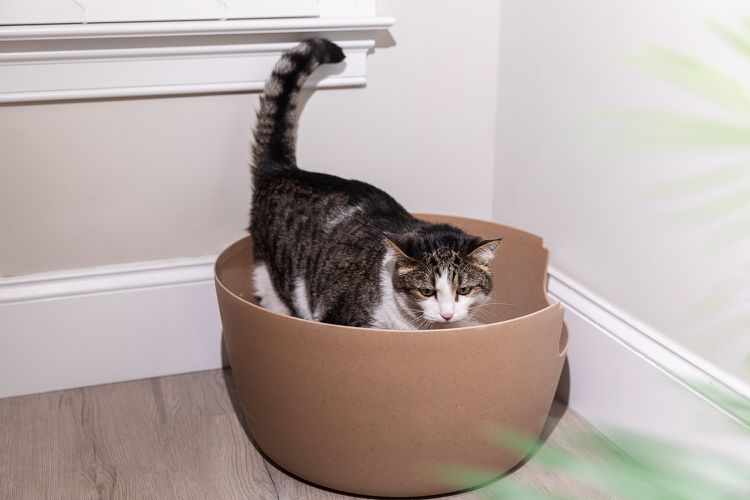Why Cats Don't Always Cover Their Poop

Covering poop is a normal cat behavior, right? Not necessarily. Wild cats that bury their excrement do so for basically two reasons: One is to keep their presence unknown from possible predators. The other is to show that they are not challenging more dominant cats. These more dominant cats rarely bury feces, and often leave waste on grassy tussocks that elevate and make it even more prominent.
So, it seems the only reason for a domesticated cat to bury its poop is if there is a dominant cat in the house. However, burying excrement is a very natural cat behavior. Why then is your cat not doing it?
Pleasing Humans
Humans have encouraged the behavior in our pet cats, by selectively choosing (and breeding) the ones that are “clean.” Cats that leave their excrement uncovered for the world to admire are not abnormal—they’re just being cats.
If your kitty has always dug-and-covered as normal litter box behavior, and suddenly makes a statement with uncovered poop, ask yourself what else has changed. This may be the cat’s way of sending a smelly signal to other cats (or even a stray hanging around outside the window) that the territory is owned.
Declaring Territory
In the wild, dominant cats (including jaguars, leopards, lions, and tigers) that are competing for territory don't bury their feces, sending a message that they are declaring that spot as their own. A domesticated cat may choose to not bury their poop to let other cats—or their owner—know "I am here." Even if a cat has lived in the same place for a while, he may not feel it is his territory. The smell of their poop shows that particular cat's presence.
Natural Inclinations
Cats that choose not to cover, or leave a deposit outside the box, may simply be doing what comes naturally. Although burying feces is generally a modeled behavior from the mother cat, some cats actually never learn to do this. Separately, roaming kitties may use unburied waste as another form of marking.
Litter Box Issues
When it comes to litter boxes, size does matter. Maybe your cat's litter box is too small for them to turn around inside to bury the poop. And, as the saying goes, cats can be finicky—perhaps your cat doesn't like the feel of the cat litter, or the box is too dirty, and they would rather not spend any extra time in there. If you suspect one or both of these things could be true, give a new brand of litter a try, or upgrade to a larger litter box.
Medical Issues
There aren't any specific diagnoses that would cause your cat to not bury their poop, but if your cat is experiencing some kind of pain or discomfort—whether in their paws, while going to the bathroom, or just in general—that could deter them from spending more time in the litter box. Also, cats who have been declawed recently could choose to skip the burying process.